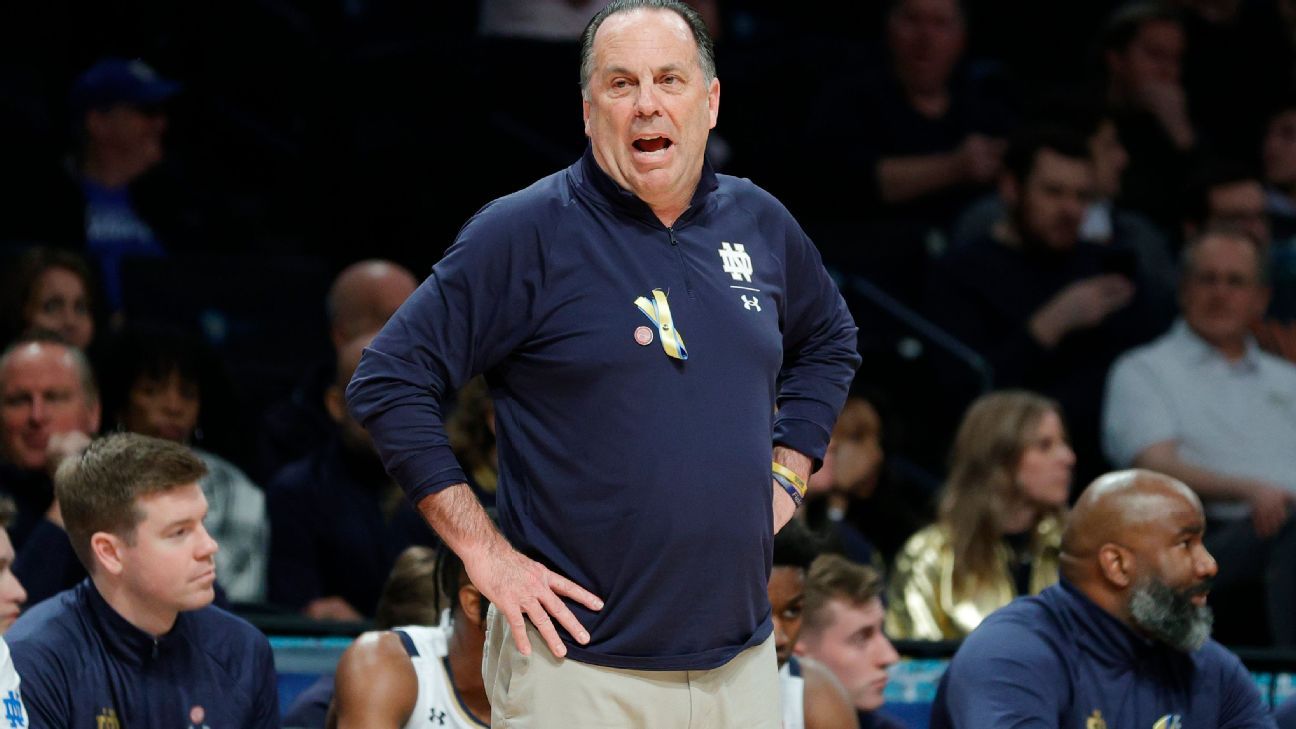AMELIA ISLAND, Fla. — Amid a significant outcry from coaches and a new NCAA push toward regulating name, image and likeness deals, Notre Dame basketball coach Mike Brey has a message for his colleagues upset with an often chaotic process.
“[Coaches] have got to stop complaining,” Brey said Tuesday at the ACC’s annual spring meetings. “This is the world we’re in, and last time I checked, we make pretty good money. So everybody should shut up and adjust.”
In recent weeks, NIL has riled a number of coaches, particularly in the ACC. In late April, reports circulated that Miami basketball player Isaiah Wong would transfer if not offered more NIL money, though he ultimately denied the rumors and decided to stay with the Hurricanes. Meanwhile, Pitt wide receiver Jordan Addison entered the transfer portal earlier this month amid allegations of tampering from other schools and rumors of an NIL deal valued in the millions.
Despite those incidents, however, Brey said coaches need to accept the new reality.
Last summer, the NCAA changed its regulations to allow any player to transfer without sitting out a year, while a compilation of state laws went into effect allowing college athletes to earn revenue for endorsements, speaking engagements and other NIL opportunities.
In the aftermath, booster groups have formed at a majority of FBS schools, offering lucrative NIL deals to both recruits and current players. On Monday, the NCAA announced it would seek to better enforce rules restricting NIL offers designed to lure athletes to a particular school.
Brey said he was doubtful the NCAA’s enforcement efforts would be successful, however, and he suggested the power to address a largely unregulated market would ultimately fall to the individual conferences.
Miami AD Dan Radakovich said that was a discussion point among athletic directors but suggested the current strategy should revolve around solutions at the NCAA level.
“Is it better from a conference or national perspective?” Radakovich said. “That’ll need to get vetted a little bit more, but right now it’s more national compliance enforcement, so that’s what we need to look at.”
The NCAA has offered little evidence it could effectively enforce what few regulations are in place. And with fear of antitrust litigation, most coaches doubted a stricter rulebook was forthcoming.
“Nobody thought people would be stealing players off other people’s teams, but it doesn’t do any good to gripe about it,” Brown said. “It’s already done. We’ve got to look at how we navigate it and what we can do to fix it. The biggest discussion I can think moving forward is there’s not a process in place right now for us to be involved in fixing it. Get [coaches] in a process where we can put some sense into this that’s best for our game and best for kids.”
ACC commissioner Jim Phillips met with football and men’s and women’s basketball coaches this week, and he was peppered with questions about how to handle the new reality of NIL. His suggestion, according to Georgia Tech basketball coach Josh Pastner, was largely to get used to it.
“There might be some chances for the transfer portal where there’s maybe some guardrails,” Pastner said, “but he was very clear about the NIL that, hey, that’s not going backward.”
